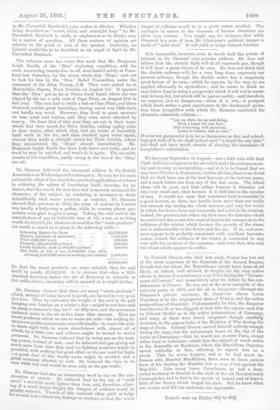In General Ducrot, who died last week, France has lost
one of the most sagacious of the Generals of the Second Empire, though not one whom the Republicans would have been at all likely, or, indeed, well advised, to forgive for his very active efforts in favour of a reactionary coup d'atat during the " Govern- ment of Combat," and immediately after its defeat by the con- stituencies of France. He was one of the most energetic of the anti-war party in 1870, and did all in his power—through the Emperor's private secretary, M. Conti—to alarm Louis Napoleon as to the unprepared state of France, and the active preparations of Germany. Unfortunately for him, the Emperor was then too ill or too sluggish to look into the reports sent him by Colonel Storfel as to the active preparations of Germany, and many of them were found unopened, though carefully docketed, in the pigeon-holes of the Ministry of War during the siege of Paris. General Ducrot exerted himself actively enough during the siege, but his unfortunate boast on the day of the sortie at Champigny—that he would not re:enter Paris, except either dead or victorious—made him the subject of much satire in the Assembly at Bordeaux, where the Republican Deputies struck attitudes at him, affecting to regard him as A ghost. This he never forgave, and as he had, much ia, fluence with Marshal MacMahon, there were at times serious fears of his leading the Marshal into a coup d'etat against the Republic. Like many brave Frenchmen, he had a deep- rooted tendency to flourish in the style of the old Revolutionary Carmagnoles, and to feel in his moods of hatred and of hope a little of the frenzy which tinged his style. But he knew what war meant, and did not underrate his opponents.






























 Previous page
Previous page